Adderall Hair Loss: Causes And Treatment
Learn how this medicine impacts your hair and what you can do to cope with the side effects.
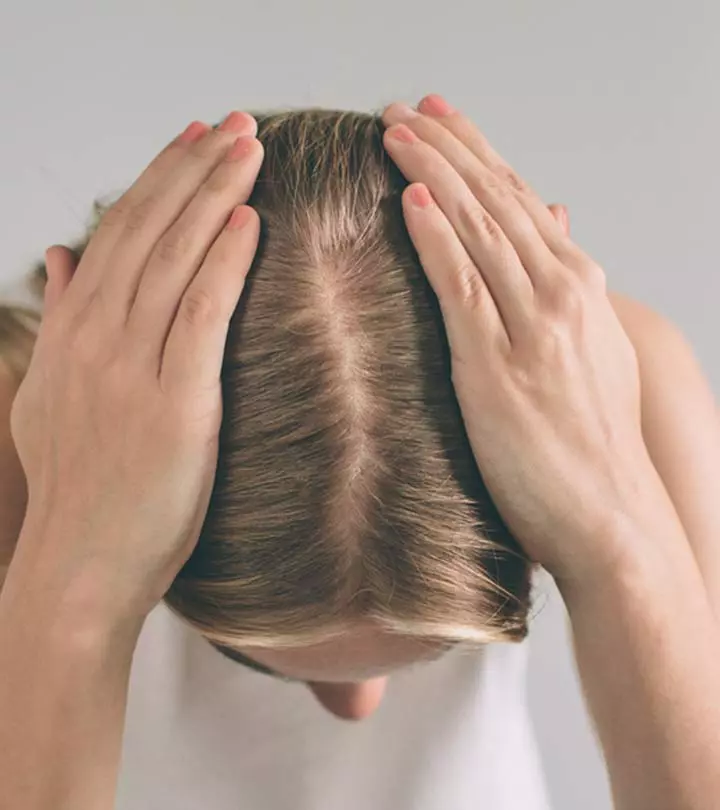
Image: Shutterstock
Adderall is intended to manage narcolepsyi A chronic sleeping disorder that affects the brain’s ability to control the sleep-wake processes, causing daytime sleepiness. and attention deficit hyperactivity disorder (ADHDi A chronic mental health condition characterized by attention difficulty, hyperactivity, and impulsiveness. ). If you have ever read its label, you might have noticed that its long-term use may lead to Adderall hair loss. There are no studies to prove if Adderall is harmful to the scalp and affects hair growth. However, research has revealed that psychotropic medicationsi Drugs used in the treatment of mental illnesses capable of affecting mental function and behavior. and psychostimulantsi A substance that has the ability to stimulate the central nervous system or influence cognitive functions and behaviors. could cause alopeciai An autoimmune disorder in which you observe patchy hair loss from the scalp or any part of the body. and lead to hair-pulling behavior (trichotillomania) (1), (2). This article looks at how Adderall can lead to hair loss and methods to deal with it. Take a look.
In This Article
What Is Adderall?
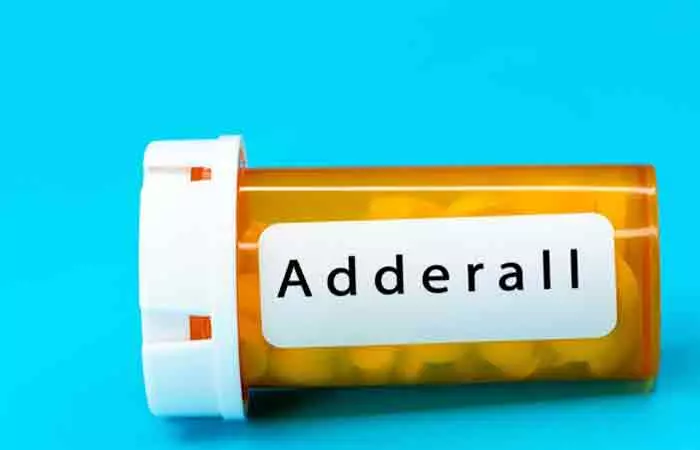
Adderall is an FDA-approved prescription psychostimulant medicine. It is considered the first choice for treating ADHD. Adderall is also commonly prescribed for narcolepsy, a sleep disorder, as it can increase the daytime wakefulness in people with the condition.
Ardelle, a Youtuber, had ADHD and took Adderall for a month. She shared the results in one of her blogs, as follows: “It just helped me focus stronger on, like, one thing and if anything, it kept me up late, and it just didn’t do for me what I was hoping that it would (i).”
Adderall usage and dosage are closely monitored and controlled by a doctor as overdose and prolonged usage of the drug can cause dependence, leading to psychological and other side effects like cardiovascular issues.
As with any other drug, Adderall may cause some mild and severe side effects, including but not limited to:
- Lack of appetite
- Headache
- Stomach pain
- Nausea
- Weight loss
- Allergic reactions
- Muscle breakdown
Hair loss is also a potential side effect of using Adderall.
Key Takeaways
- Adderall is an FDA-approved psychostimulant medication that is mainly used for treating disorders such as ADHD (Attention Deficit/Hyperactivity Disorder) and narcolepsy.
- Continued use of adderall can lead to many side effects, such as loss of appetite, cardiovascular issues, and severe hair fall.
- Hair loss as a result of Adderall can be treated by managing anxiety, following a balanced diet, taking daily vitamin supplements, and practicing yoga.
How Does Adderall Cause Hair Loss?
You must be wondering, “does adderall cause hair loss?” While it is normal to shed some hair every day, prolonged and regular use of Adderall can potentially cause severe hair fall. The drug may cause hair loss either directly or indirectly.
1. Direct Effects Of Adderall On Hair
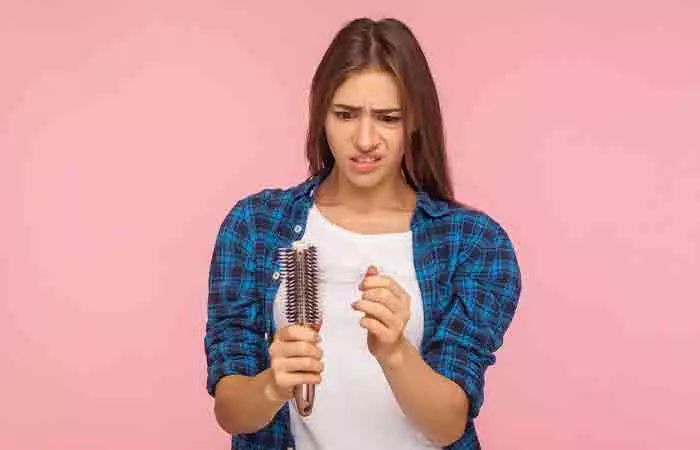
The ingredients in Adderall may negatively impact hair follicles or growth cycles in an individual and cause hair fall. However, there is limited research on the direct effects of Adderall on the hair. The manufacturer lists hair loss as one of the primary side effects of Adderall.
2. Indirect Effects Of Adderall On Hair
Adderall as a stimulant has many psychological side effects that may cause changes in an individual’s behavior patterns and lead to indirect hair loss. They include:
- Compulsive Behaviors
People often develop compulsive behaviors to cope with the overstimulation and anxiety triggered by Adderall usage.
As per a 2013 case report, a 12-year-old child who was prescribed Adderall for ADHD developed trichotillomania, a compulsive hair-pulling disorder. The behavior was resolved once the child stopped taking Adderall, and the doctors concluded that trichotillomania was a rare side effect of Adderall usage (2).
A 2020 study published in Psychiatry Research that was conducted on people with trichotillomania established a comorbidity between psychological disorders and trichotillomania. As the graph indicates, the findings revealed that over 79% of the sample population with trichotillomania had mental health issues including anxiety disorder, chronic depression, OCD, PTSD, and ADHD.

Current Psychiatric Comorbidities Reported By 175 Adults With Trichotillomania
Source: Prevalence, Gender Correlates, and Co-morbidity of Trichotillomania- Lack Of Sleep

Adderall can cause sleeplessness and restlessness, which, in turn, affect hair health and may cause hair thinning.
- Loss Of Appetite
One of the possible side effects of the drug is a loss of appetite. This may trigger nutritional deficiency, leading to excessive hair fall.
- Itchy Scalp
Adderall is also known to cause itchy scalp. This may lead to scratching tendencies, leading to hair loss.
While Adderall can make your hair fall out, are there any chances for hair regrowth? Let us find out in the next section.
Is Hair Loss Caused By Adderall Reversible?
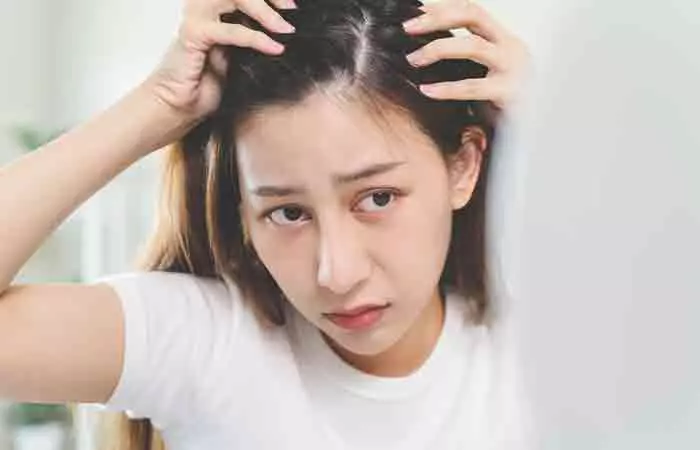
Yes, it is reversible. Drug-induced hair loss is often reversible, and the hair grows back once you stop using the drug.
Medications generally cause hair loss by interfering with the normal hair growth cycle. However, as long as the hair follicles are not permanently damaged, the hair may grow back. Adderall does not damage the hair follicles, making it possible to recover from excessive hair thinning or baldness.
If you are experiencing hair loss after taking Adderall, you can talk to your doctor regarding the recovery options. They may lower the dosage or prescribe other medication to prevent hair loss.
You can also do the following things to take care of your hair.
Treating Adderall-Induced Hair Loss
Firstly, do not discontinue using Adderall without medical advice as that may lead to other complications. Instead, try these strategies:
- Consider All Factors
Multiple factors can lead to excessive hair loss, including heredity, medication, poor nutrition, and environmental factors.
Consider these factors before assuming the cause of your hair loss. Talk to the doctor and check if you have any nutritional deficiencies or an underlying condition.
- Manage Anxiety
Stress or anxiety may also cause hair loss (3). This may further be aggravated by Adderall use. Try to manage your anxiety and stress levels. Join a support group and talk to others. Getting support through group therapy allows you to share concerns with other people who understand your condition, thus minimizing the emotional stress of hair loss. A counselor or therapist can offer coping strategies to help manage concerns about appearance and reduce anxiety. You may also try new hobbies, medication, relaxation techniques, exercise, and spend more time with your loved ones. A combination of everything may bring down your stress levels.
- Follow A Balanced Diet

Get yourself tested for vitamin deficiencies and hormonal imbalances. Both can contribute to hair loss. Consult a dietitian and nutritionist and follow a balanced diet that meets your unique nutritional requirements.
 Quick Tip
Quick Tip- Take Vitamin Supplements
Often, our diet falls short of meeting our daily nutritional requirements. Talk to a nutritionist and ask them for multivitamin supplements to prevent deficiencies. This may help control Adderall-induced hair fall.
 Trivia
Trivia- Consult A Trichologist
Hair loss can be distressing. You may consult a trichologist who specializes in hair loss to discuss your case and look for solutions.
- Consult A Hairstylist
If you have thinning hair, it would be a challenge to style it properly. Find a hairstylist who understands your unique needs and styles your hair in a way that makes it look fuller. You may also ask for a suitable hair care regimen to take care of your fragile hair.
- Try Yoga
Yoga has constantly been known for its numerous health benefits, to which hair growth has also been added recently. There are certain yoga asanas that you may benefit from and combat Adderall-induced hair loss. Starting off with Kapalabhati, this popular breathing asana promotes oxygen supply, reduces free radicals, and combats excess androgens in the body, while targeting weight loss, which together may help in promoting hair growth and tackling hair loss (6). According to anecdotal evidence, another effective exercise is Sarvangasana. This asana may help increase blood circulation to the head, which may nourish the hair follicles and boost hair growth.
Prolonged usage of Adderall can lead to dependence, addiction, and numerous side effects, including hair loss. While you may also try other different methods to reverse hair loss from medication, there has been much focus on finding alternative treatments to Adderall in recent years. If you wish to reduce or discontinue Adderall and explore alternative therapies instead, talk to your doctor. Tweaking the prescribed dosage or medications on your own may result in undesirable physical and psychological effects. The doctor may prescribe the following options.
Alternative Treatments To Adderall
- Citicoline
Citicoline is a pharmaceutical substance with neuroprotectivei Strategies employed to protect the neuronal structure against injuries or neuronal cell death. properties. It supports proper brain function and healing and slows down neurodegenerative disordersi Illnesses that can cause the death of nerve cells with progressive damage to neuronal cells and nervous system connections. . Research suggests that Citicoline supplements can help with brain and nervous system disorders (7). It may help manage ADHD symptoms and may be used as an alternative to Adderall.
- Methionine
Methionine is an amino acid that helps with many body and brain functions. An active form of methionine, S-Adenosyl-L-methionine (SAM), is used as a supplement to treat ADHD (8). However, this supplement may lead to manic episodesi A period of abnormally elevated mood, intense energy, racing thoughts, and other extreme behaviors. and increases anxiety.
- Mineral Supplements
Some people with ADHD may have low levels of certain mineral nutrients. While you can meet your vital mineral requirements from a balanced diet, those who are deficient may have to take supplements.
Supplements like iron, magnesium, and zinc may help reduce symptoms of ADHD in some children (9), (10). However, more scientific research is needed to back up the effectiveness of these supplements in treating ADHD.
- Vitamin B6 Supplements
Vitamin B6 plays a key role in creating serotonin, a chemical that controls mood and brings about a sense of calmness. Adequate amounts of vitamin B6 and the mineral magnesium are required to help balance the brain chemicals.
A study suggests that children with ADHD who took vitamin B6 and magnesium supplements for eight weeks had fewer symptoms (11).
- Behavioral Therapy
For children with severe ADHD, behavioral therapy can be beneficial. This approach works on resolving specific behavior problems. However, behavioral therapy is most effective when used in conjunction with medication.
Infographic: 5 Ways Adderall May Harm Hair Health
Adderall is an effective drug prescribed to combat symptoms of ADHD. However, it is not free from side effects. Many patients have reported experiencing hair fall after taking this medication. Check out the infographic below for some of its side effects that may induce hair fall.

Illustration: StyleCraze Design Team
If you are using Adderall, you may notice hair loss. However, this is temporary, and your hair will grow back once you stop the medication.
To Adderall-related hair loss, discuss your treatment options with your healthcare professional. Ensure that you follow the guidelines properly, consume a balanced meal, and take supplements to prevent hair fall. Lowering the dosage, behavior therapy, or an alternative medication may help manage severe hair loss.
Medications often cause unwanted side effects. However, learning about medications that cause hair loss and discussing the potential risks and ways to minimize the side effects with your doctor always helps. If you are on Adderall, ensure that you follow the guidelines properly. Also, consume a balanced meal, talk to the doctor, take supplements to prevent hair fall, and follow a good hair care routine. However, if you notice excessive hair fall, consult your doctor and see if the medication can be changed or if there is an alternative to manage the issue.
Frequently Asked Questions
How long does it take to recover from Adderall?
While it varies from person to person, you may begin to see changes anywhere between 5 days to 3 weeks.
Is it okay to take Adderall every day?
Yes, it is safe to use it every day as per the doctor’s prescription and dosage.
Does Adderall make you obsessive?
Yes, Adderall may make you more restless and impatient. Hence, ensure you get the right dosage from the doctor.
References
Articles on StyleCraze are backed by verified information from peer-reviewed and academic research papers, reputed organizations, research institutions, and medical associations to ensure accuracy and relevance. Read our editorial policy to learn more.
- Alopecia due to psychotropic medications
https://pubmed.ncbi.nlm.nih.gov/10369629/ - Adderall-induced Trichotillomania: A Case Report
https://www.ncbi.nlm.nih.gov/pmc/articles/PMC3779907/ - Hair and stress: A pilot study of hair and cytokine balance alteration in healthy young women under major exam stress https://www.ncbi.nlm.nih.gov/pmc/articles/PMC5397031/
- Effect of a nutritional supplement on hair loss in women
https://pubmed.ncbi.nlm.nih.gov/25573272/ - The Role of Vitamins and Minerals in Hair Loss: A Review
https://www.ncbi.nlm.nih.gov/pmc/articles/PMC6380979/ - Effect of Kapalabhati in a Patient with Polycystic Ovarian Syndrome
https://www.jcdr.net/article_fulltext.asp?issn=0973-709x&year=2021&month=March&volume=15&issue=3&page=YD04&id=14666 - Neuroprotective Properties of Citicoline: Facts, Doubts, and Unresolved Issues.
https://www.ncbi.nlm.nih.gov/pmc/articles/PMC3933742/ - S-adenosyl-L-methionine (SAM) in adults with ADHD, RS: preliminary results from an open trial
https://pubmed.ncbi.nlm.nih.gov/2236465/ - The Role of Nutritional Supplements in the Treatment of ADHD: What the Evidence Says
https://pubmed.ncbi.nlm.nih.gov/28168597/ - Effects of iron supplementation on attention deficit hyperactivity disorder in children
https://pubmed.ncbi.nlm.nih.gov/18054688/ - Improvement Of Neurobehavioral Disorders In Children Supplemented With Magnesium-Vitamin B6. I. Attention Deficit Hyperactivity Disorders
https://pubmed.ncbi.nlm.nih.gov/16846100/
Read full bio of Dr. Shruti Chavan
Read full bio of Ramona Sinha
Read full bio of Anjali Sayee
Read full bio of Swathi E






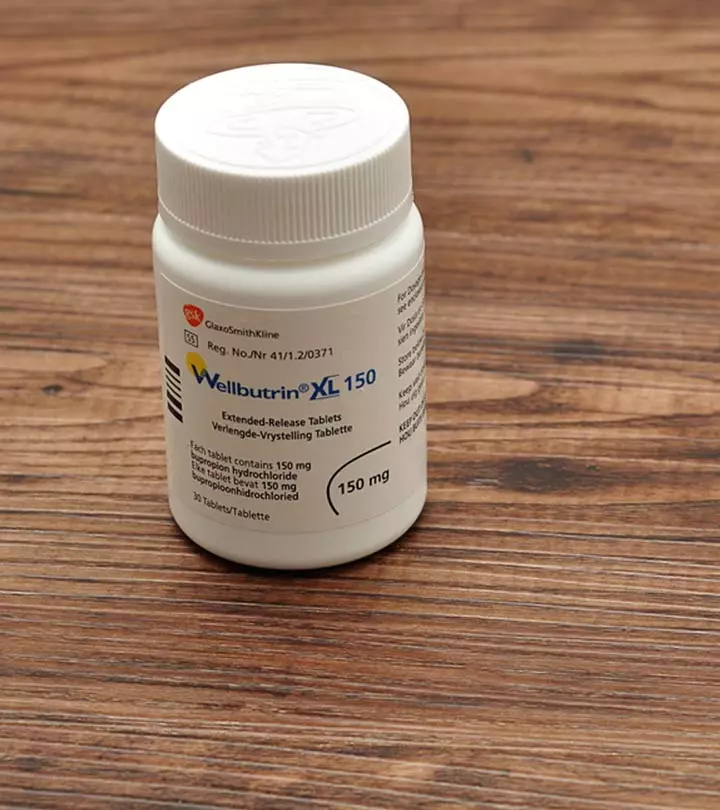
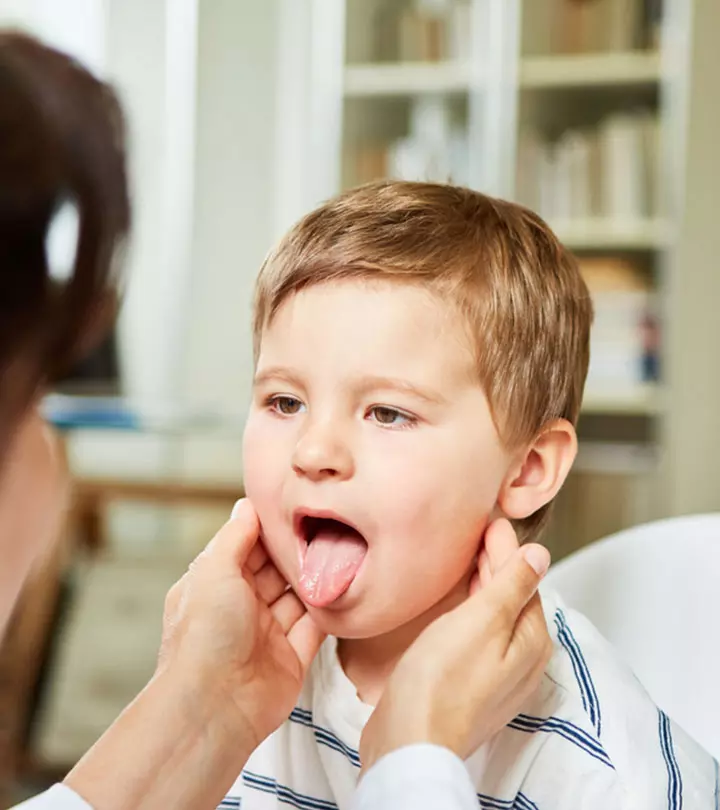
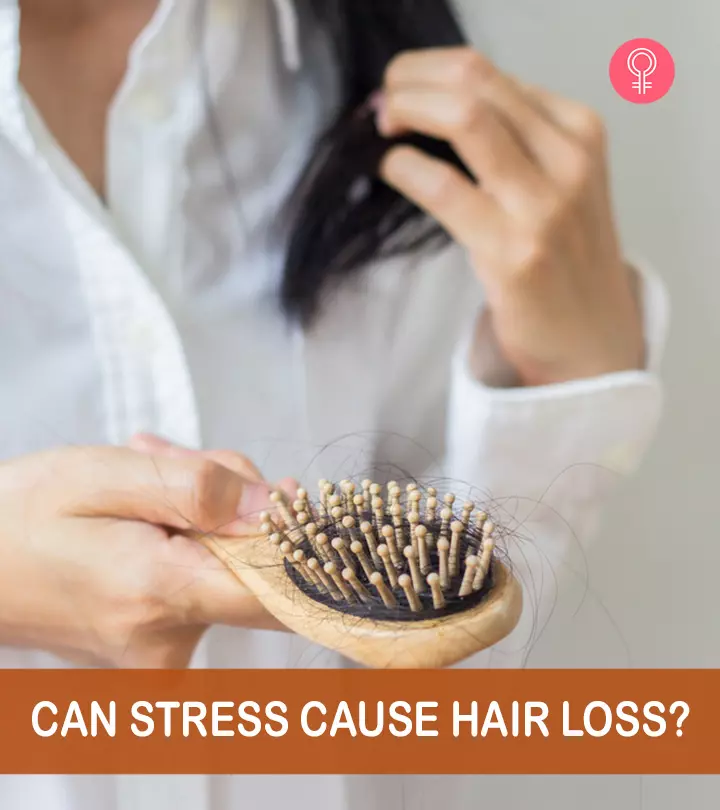

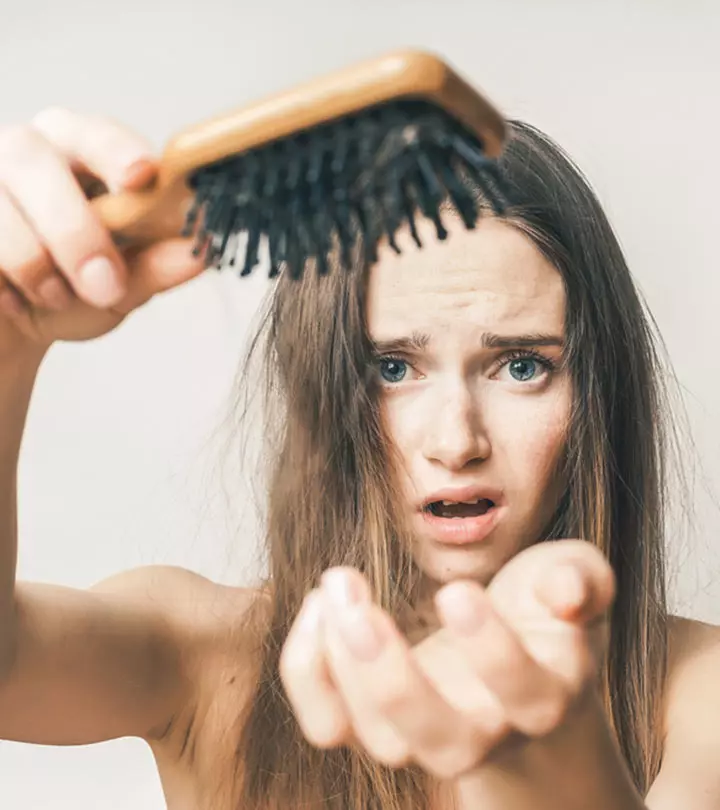

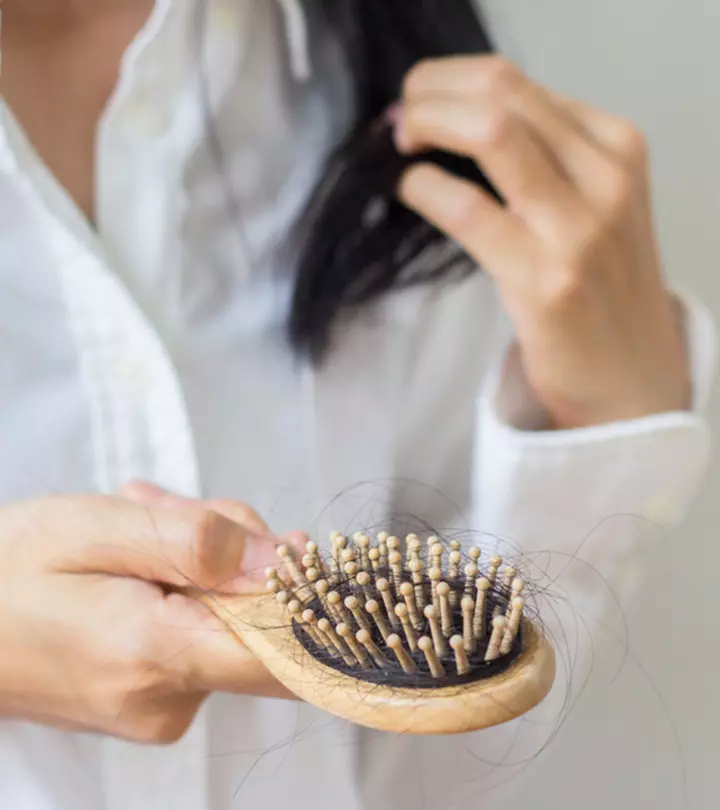
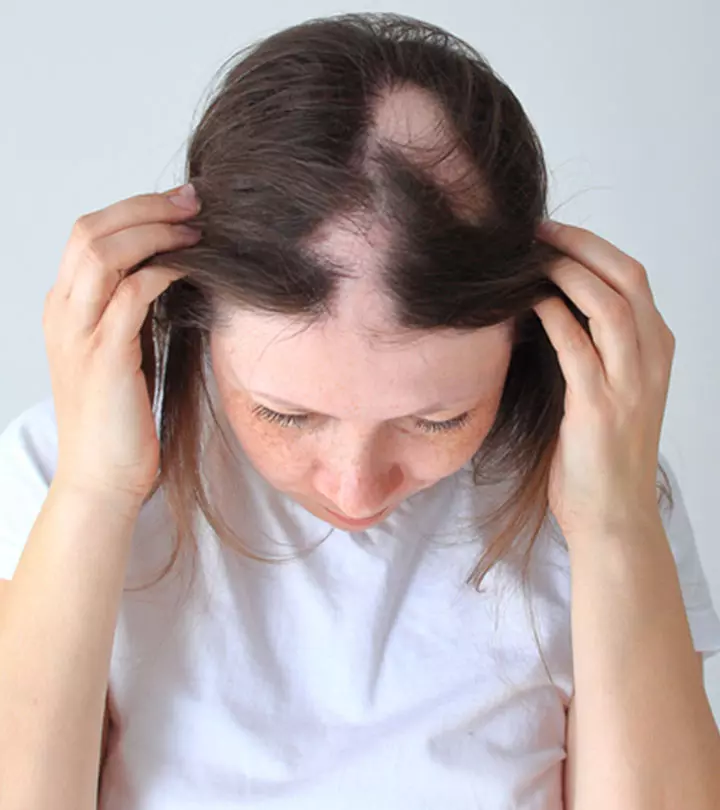
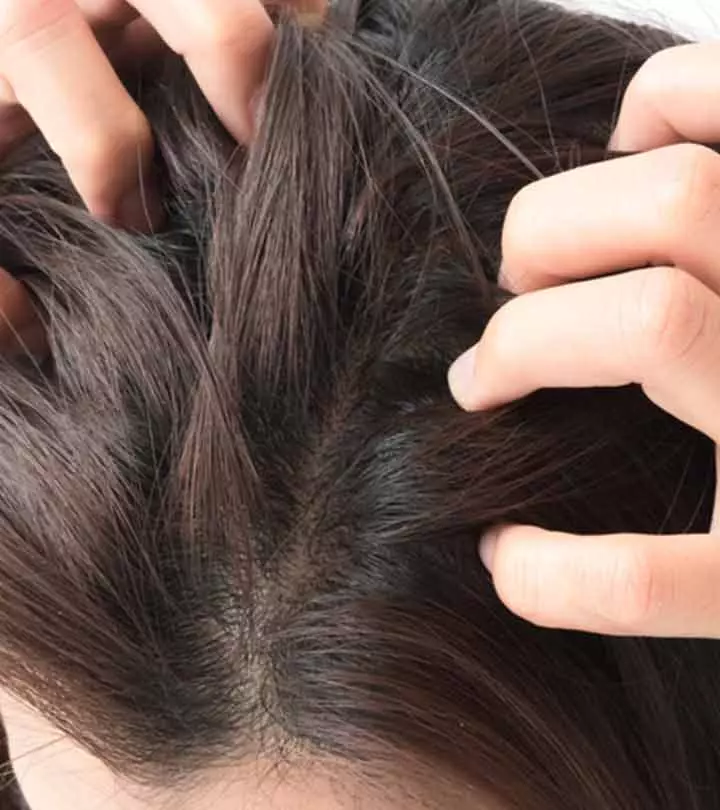
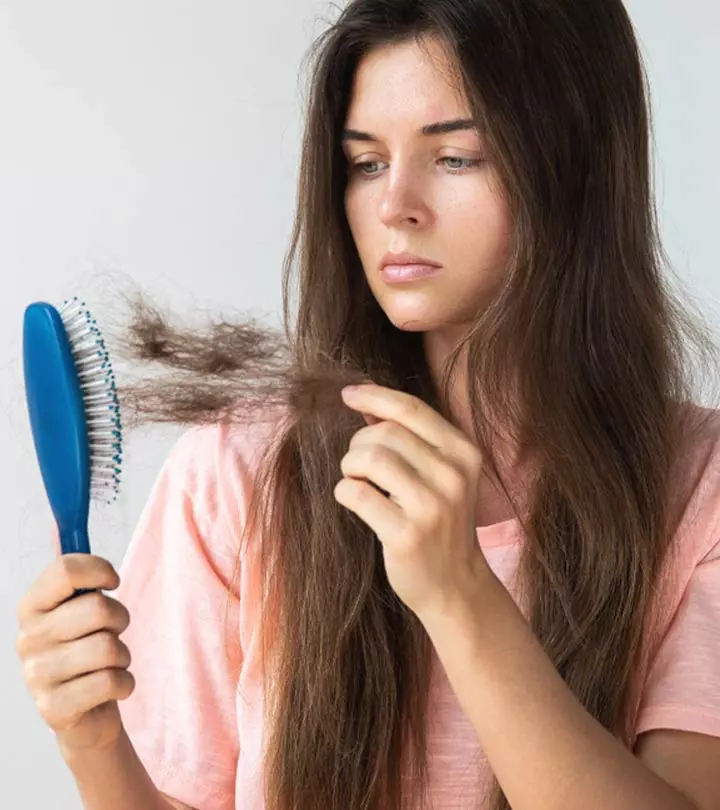

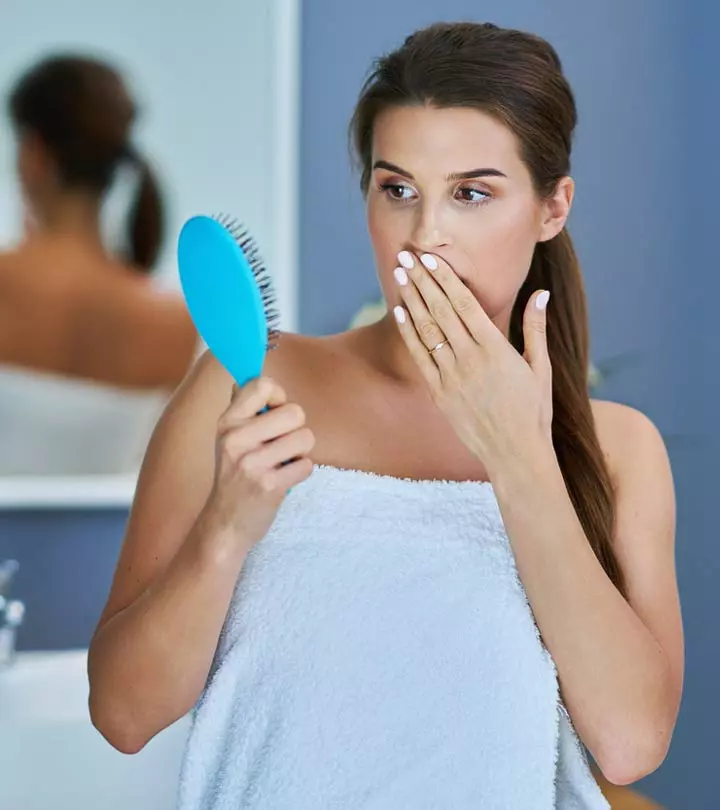




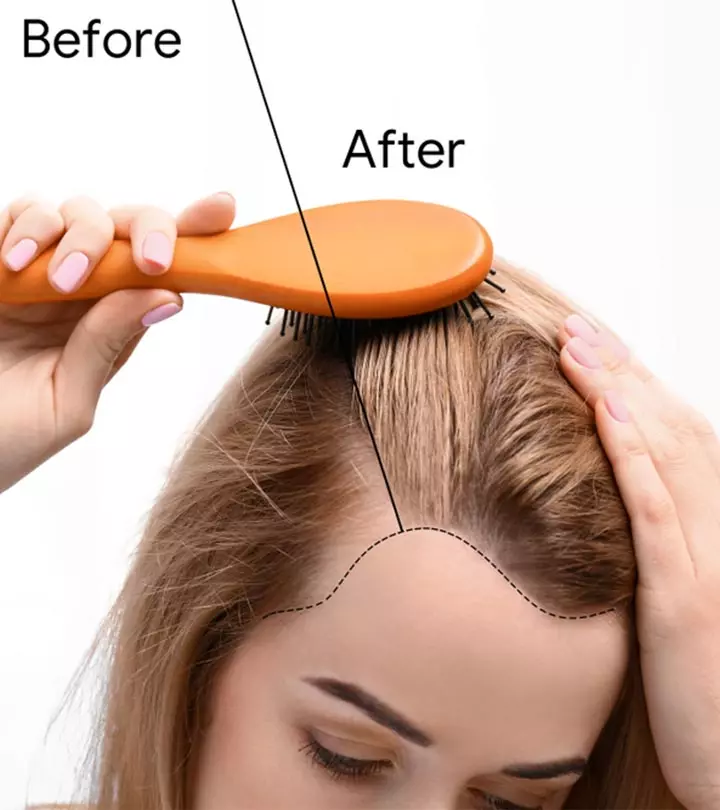
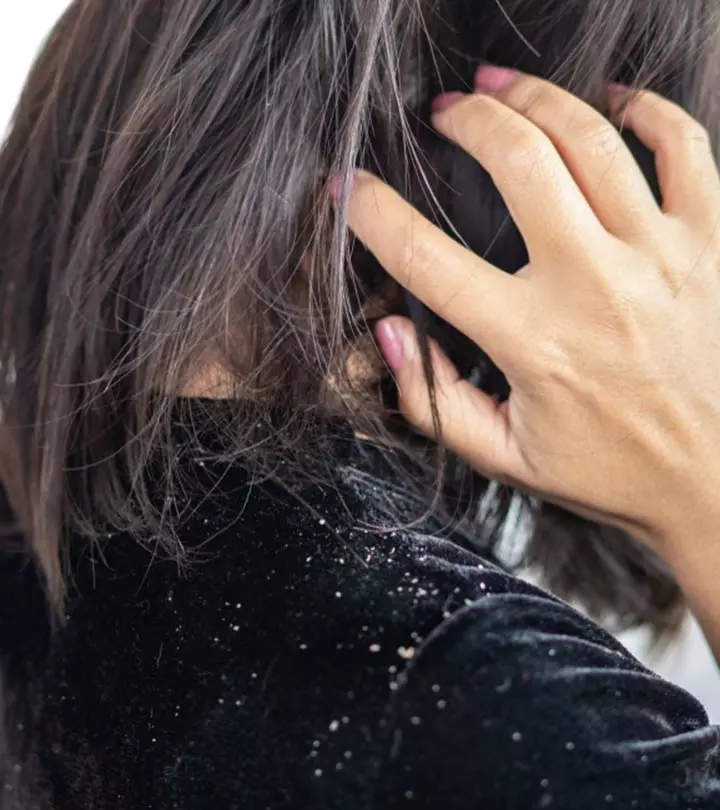
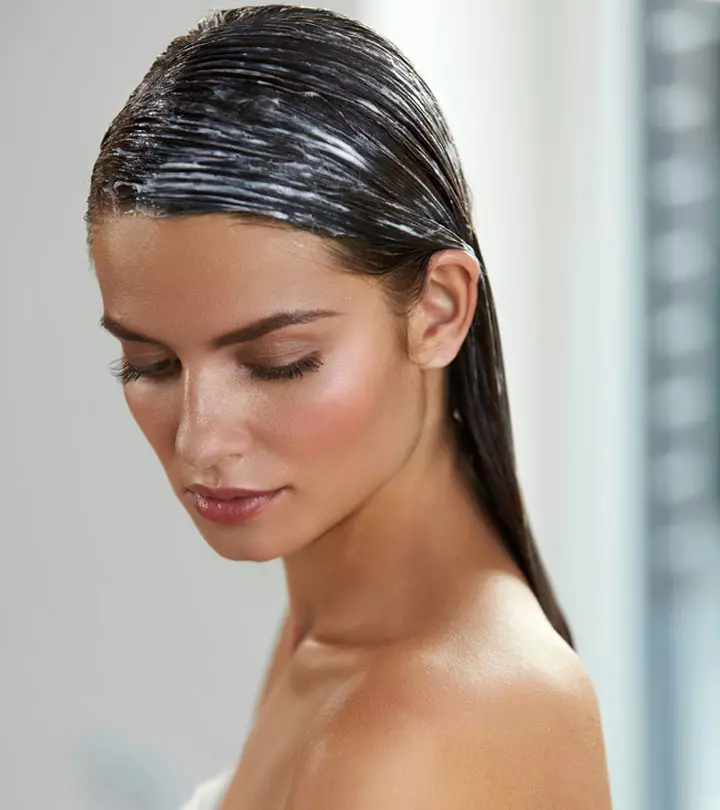
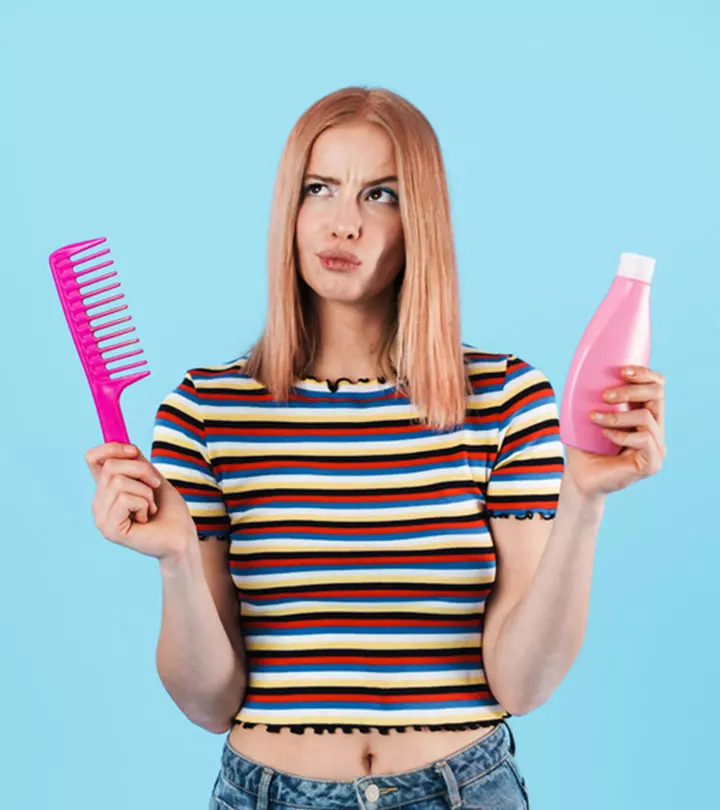

Community Experiences
Join the conversation and become a part of our empowering community! Share your stories, experiences, and insights to connect with other beauty, lifestyle, and health enthusiasts.